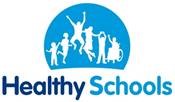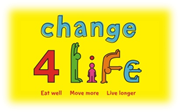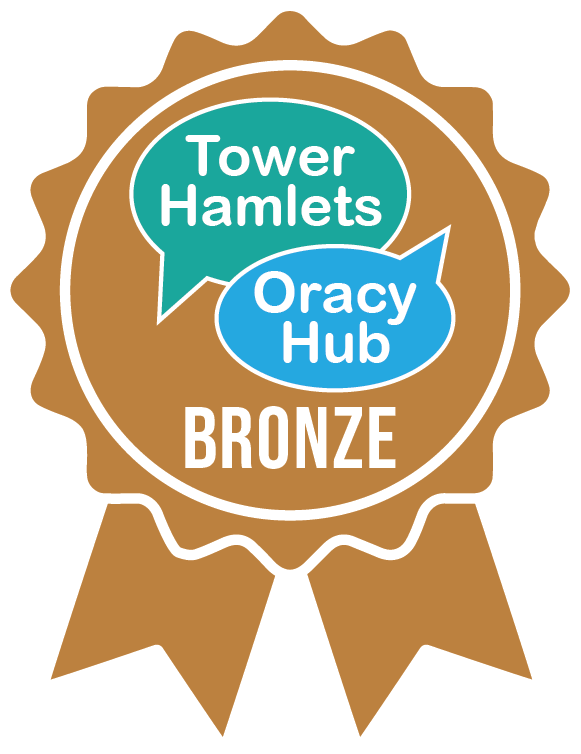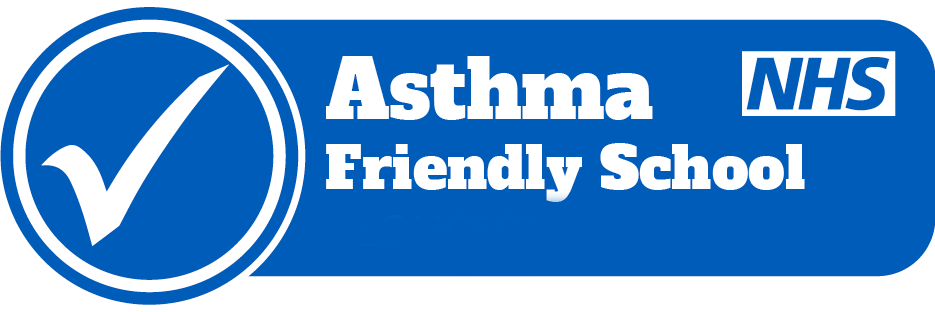Parents
School Hours
| School Starts at | 8.50 am |
| School Finishes at | 3.20 pm |
Lunchtime
| Early Years | 11.45 am - 1.00 pm |
| Year 1 | 12.00 pm - 1.00 pm Year 2 12.30pm - 1.30pm |
Bringing your Child to school
All children should be in the playground by 8.50 in the morning when the bell rings. When the bell is rung, Nursery and Reception children should be taken into their classroom. Year One and Year Two children line up in the playground and are taken to their classrooms by the teachers.
Collecting your Child - Lunchtimes (if your child has Home Dinner)
If you are collecting a child from Nursery or Reception, you must use the entrance in King David Lane not the main school entrance. If you are collecting a child from Year One or Year Two, please use the main entrance.
Collecting your Child - End of School (unless your child attends the After School Club)
Nursery and Reception children are collected from their classroom. Please wait in the playground until the teacher is ready to open the door to let the children come out. The adult will call your child from the carpet.
Year One and Year Two children are brought downstairs by their teacher and teaching assistant. They are not allowed to go home until the adult has seen the parent. Parents can help by making sure that they wait until the teacher sees the parent and allows the child to go home.
Collecting your Child from the After School Club
Parents or designated guardian should collect their child from the School Foyer at 4.15 pm.
Accidents in School
We want children to have the opportunity to play and explore in school as this is how young children learn. However, that means that despite all precautions we put in place, they may have minor accidents like cuts and bruises from time to time. This is a natural part of growing up.
We agree with the Royal Society for the Prevention of Accidents (RoSPA) view that ‘children should be allowed to play demanding games and risk minor injuries as part of wider lessons in life. It is acknowledged that ‘by scraping knees, grazing elbows and getting bruises, children learn valuable lifelong lessons that will help them to avoid more serious injuries in later life’ (RoSPA, June 2007).
We aim to ensure that there are no accidents in school which could be avoided, whilst encouraging children to play and explore. We teach them to take responsibility for their own actions and to learn to behave sensibly and follow the school rules.
All staff in school are expected to ensure that children do play and behave sensibly and that equipment is safe and in good condition. Our Premises Manager, Terry, is proactive about checking the grounds and equipment to make sure they are safe.
There are a number of staff in school who are trained first aiders, but all staff are expected to deal with minor accidents like cuts and bruises, just like parents do if their child has an accident at home. A first aider is called if there is a more serious injury. This includes a badly bumped head, heavy bruising with a headache or distorted sight, possible fractured or broken bones and severe cuts or external bleeding.
Each class has a first aid box. The class teacher is responsible for ensuring that this is complete. There is additional first aid equipment for KS1, kept by the door nearest to the playground. The Senior Midday Meals supervisor is responsible for ensuring that this is complete. First Aid boxes are kept in each classroom for adults to take on trips.
Record Keeping
Each class has an accident book to record minor injuries in their classroom, with a copy for parents. In KS1 there is also an accident book for each class by the playground door.
The school follows the Local Authority Guidance on reporting serious accidents, involving hospitalisation, directly to the Local Authority.
Informing Parents
Parents are informed at the end of the school day of any minor accidents in school by being given a copy of the accident form. They are contacted during the day in the case of more serious injuries, including bumps to the head which may need the child to be taken to hospital in the opinion of the first aider, to be checked.
In the case of a major injury, an ambulance will be called and the parents informed to come to school straight away. If the child is taken to hospital, parents will be expected to go with their child in the ambulance. If the school is unable to contact the parents, an appropriate person from school will accompany the child until the parent gets there.
Please remind your child to tell an adult if they have hurt themselves in school so that first aid can be given. Making sure that your child has lots of experiences of running and playing while they are young helps them to avoid having accidents as they get older.
Attendance & Punctuality
As a parent, you have a key role to play in teaching your child the importance of attending school every day, being on time and ready to learn.
It is very important that children learn good habits at this early stage in their lives as this will affect their future attitude to school, and later in life, their attitude to work. Please don’t think that because your child is of a young age it doesn’t matter if they miss school or come into school late. Your son/daughter will be missing out on all the very important learning and socialising that takes place in school. By not attending regularly, you will be teaching your son/daughter a very bad pattern of behaviour that can prove difficult for you to undo.
Attendance
We expect children to attend school even with a minor illness or a cough or cold. Most children feel better once they are in school and we will always contact you if they are too unwell to stay in school. If your child has diarrhoea or is vomiting or has a high temperature which you have checked with a thermometer, you will need to keep him/her at home. Please phone and let us know what is wrong with your child and when you think they will return to school.
Punctuality
School starts at 8.50am. The vast majority of children are in the playground ready to go into school when the bell rings. However a few children are often late and are rushing through the gates just after nine o’clock. This is not a good start to the school day for your child because he/she has to go into class, missing the first part of the lesson, and feeling rushed and worried about being late. It is also very unfair on the other children in class who are disrupted by children coming in late. The gates will be closed at 9.05am.
OFSTED
In our last OFSTED report, poor attendance was a key issue, especially for the younger children. Schools are expected to have an attendance rate of at least 96%. Attendance for 2018-19 was 95.3%. We would really like to see a significant improvement as the attendance rate is in the bottom 10% of all schools nationally. We would really appreciate your support in this matter.
Leave in Term Time.
Governors follow the Local Authority’s recommendations and guidelines on extended leave, and therefore the majority of absence from school in term time to visit friends or family or for a holiday will be unauthorised.
If you are planning on taking your child out of school, you will need to complete an application form and return it to the office.
We take attendance issues seriously and in March 2013, Governors adopted the Penalty Notice Scheme Protocol. Where a child has 5 days or more unauthorised leave in term time, a penalty notice will be issued. Parents are informed of this when applying for leave in term time. The full cost of a Penalty Notice is £120 payable within 42 days but is reduced to £60 if paid within 28 days. Leave in term time or children missing school for unacceptable reasons will be recorded as unauthorised. From August 2024, the Penalty Notice is £80 per parent if paid within 21 days or £160 if paid within 28 Days.
Please help us to give your son/daughter the best possible start to a good education and make sure that in our next inspection we are able to tell the Ofsted Inspectors that attendance has improved.
Expectations of Behaviour
Learning to behave appropriately in different situations is an important lesson for children to learn. Children need to learn how to behave in school so that they are able to concentrate on their lessons and make good progress in their learning.
All children are expected to show respect for other children and adults in the school. We do not allow children to upset their friends by doing or saying anything which may upset or hurt another child. We teach children to manage their own behaviour and to make sensible choices.
The children are praised for good behaviour throughout the school. This could be by the adult telling them what they have done well, or by being given a sticker. This encourages children to behave in a positive way.
Most children behave appropriately in school; however, we use the following sanctions if children are continually misbehaving to help them to learn that there are consequences to their behaviour.
- The child is given a warning that there will be consequences if the behaviour continues.
- The child is moved away from the other children in the class to work on their own, but still in the classroom.
- The child misses 5 minutes of playtime. They hold an adult’s hand rather than playing with their friends.
- The child is sent to the link class with work that they are able to do independently. This will be for 10 minutes.
- The class teacher meets the child’s parents to discuss the behaviour.
- The class teacher and headteacher meet the parents.
If a child is misbehaving, we will talk to the parents about different strategies we can use to change the behaviour. It is important that the child understands that the teachers and parents are working together and share what the child has been doing in school.
You can help your child by teaching them to sort out difficulties with their friends by talking things through and by learning to co-operate with other children.
If your child has had a problem with another child, please let the class teacher know so that they can sort it out in school. Please don’t talk to the other child’s parents yourselves as this can sometimes make the situation more difficult.
Extended School Day
Breakfast Club
We will be running a breakfast club from 8.00 – 8.50 in the Infant Hall to help you give your child a good start to the school day. This is free for any child attending our school.
The children will be offered toast, bagels or cereal to eat and milk to drink. There will be a number of activities available for your child to engage in. There will be Infant staff in the hall to look after your child and make sure that they go into class safely. Parents can leave their children from 8.00am at the club.
After School Clubs
We run a number of After School clubs on Monday – Friday from 15.20 until 16.15. Children may join one or more clubs depending on availability of space. The type of club offered changes each term but usually includes a football club, an art club and an ICT club. We charge £2 per club which is reduced if your child receives free school meals at the moment. There is also a reduction if you have more than one child attending a club.
Medical Conditions
There are some children in our school who have medical conditions like asthma, eczema or allergies to certain foods. A few other children have more complex medical needs such as needing a feeding tube. As an inclusive school, we want to work with you to help your child manage their condition whilst also benefiting from and joining in with school activities.
The school nurse, who is linked to our school, is available to talk to parents about any medical conditions or concerns that you may have about your child’s health, particularly if this is affecting the progress that they are making in school. If you would like to make an appointment to speak to the school nurse, please speak to Patricia Lowe.
If your child has asthma, you will need to bring in an asthma pump to keep in school. Please remember that it is your responsibility to make sure that this is in date. There are emergency asthma pumps available in school if needed.
If your child needs medicine in school for a few days, for example if they are taking a course of antibiotics, you will need to talk to the class teacher and fill in a permission form so that the adults in school know how much medicine your child needs and how often, as well as confirming that you would like school staff to administer the medicine. The medication will need to have your child’s name and Date of Birth on the label with the given dosage.
Many children wear glasses in school. Some children wear their glasses all the time but others only wear them for specific lessons. Please make sure that if your child needs to wear glasses that they either bring them every day or leave a spare pair in class.
If your child has a more serious medical condition or food allergies, we need to have a letter from your doctor explaining the symptoms and treatment or which foods your child is allergic to. The school nurse will write a care plan with you, which identifies how the condition will be managed in school. This ensures that we only give children the correct treatment.
Parental Advice & Support
At Blue Gate Fields Infant School we are able to offer parents support and advice on a variety of topics. If ever you have any concerns or worries there will probably be someone in school who will be able to help.
Class Teacher
If you have any concerns about your child, for example the progress they are making in school or the friends they are playing with, it’s best if you talk to the class teacher first as they know your child well and will be able to help you. If you ask the teacher for an appointment to talk about your concerns, we can arrange a meeting when there is time to talk without being rushed. First thing in the morning is not convenient as the teacher will be teaching the children.
Patricia Lowe – Family Liaison Officer
Patricia works with parents in both the Infant and Junior School. Her role in school is to support families where there are difficulties for example where a child is not attending regularly, or if there are safeguarding concerns. Patricia is also able to offer support, often by suggesting services that parents can access or helping with filling in forms. If you would like to see Patricia she works with the Infant School on Mondays, Tuesdays all day and Wednesday afternoons.
Patricia also monitors the attendance of children and identifies any child who is not attending regularly. She is able to support parents who are finding it difficult to make sure that their child comes to school every day. She is also able to give advice on changing schools, if for example parents have moved house. Patricia will contact parents who request leave in school time and explain the consequences of the child missing school.
Coffee Mornings
Coffee sessions run by Nazia Ahmed are held most weeks to talk informally about school related topics. This can be a good way to get to know other parents. If you are interested in joining please contact the school office.
Workshops and Courses.
During the year there are many different workshops and courses run for parents. Some are ‘stand-alone’ sessions, where information will be given on curriculum areas of interest to parents, for example phonics or reading.
Attending courses and workshops really help parents to learn more about how their child is learning in school and what they can do at home to help.
Any courses or workshops are advertised through the weekly newsletter, so please keep a look out in the newsletter for upcoming courses.
We also encourage parents to visit their child’s class each half term to observe phonics, reading or maths sessions to understand the strategies the children are being taught. The staff will give ideas of how parents can best support their children at home.
If you have any ideas of how the school can further support parents with their children’s learning please come and let us know.
Parent Volunteers
As a school we welcome parent/carer volunteers to come in to school and work with children. We currently have a number of parents and carers who volunteer to support the children in their activities. If this is something that you would like to be involved in, please ask at the office for a form.
Students Undertaking Childcare Courses and Work Experience
We also welcome students undertaking courses and requiring work experience. If this is something that you would like to be involved in, please ask at the office for a form.








